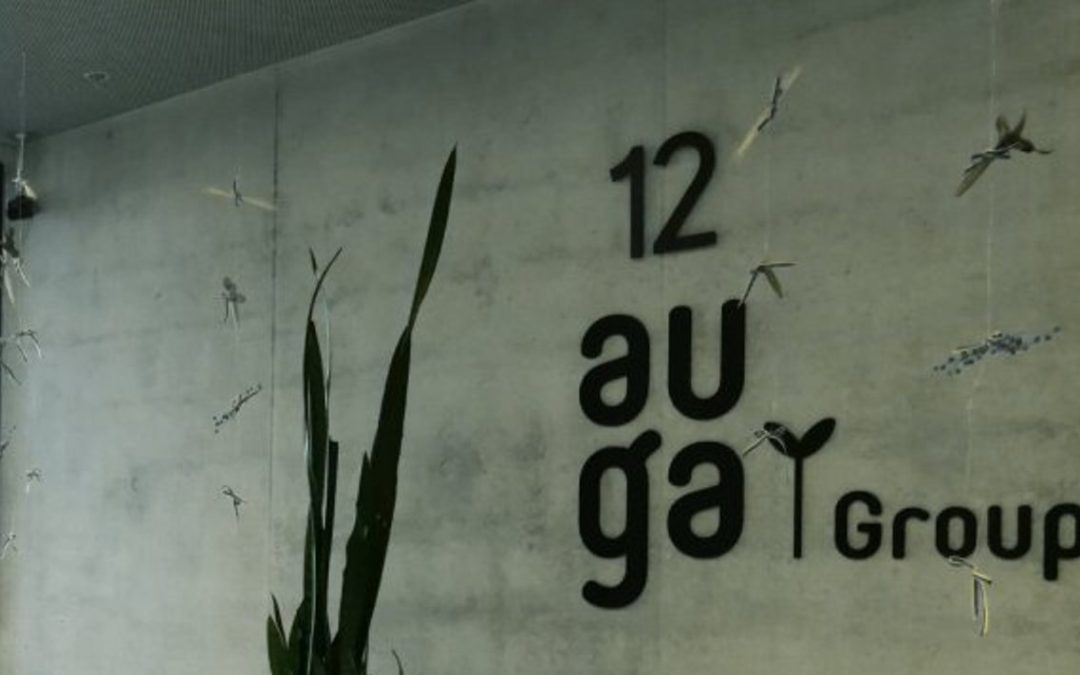Introduction
Tucked away in the northeast of the European Union, Lithuania is an agricultural powerhouse that often flies under the radar. Nearly 54% of its land area is dedicated to agriculture, with over 70% classified as arable land – one of the highest ratios in the EU. Its flat topography, fertile soils (primarily Albeluvisols and Luvisols), and temperate climate make it naturally suited to high-quality, efficient farming.
Lithuania also leads in sustainable land management. Permanent grassland coverage – key to carbon sequestration – increased by approximately 6.7 percentage points between 2013 and 2016, according to Eurostat. Since 2010, the country’s total agricultural land has expanded by nearly 6%, underscoring its growing capacity and commitment to long-term food security.
Amid this favorable environment, AUGA Group AB (Nasdaq Vilnius: AUGA1L) has emerged as one of Europe’s leading pioneers in organic, climate-smart agriculture – offering a rare blend of sustainability, technological innovation, and financial potential.
1. AUGA: A Scalable and Sustainable Model
100% Organic, Fully Integrated Operations
AUGA manages approximately 39,000 hectares of certified organic land – making it one of the largest organic farming companies in Europe. Its vertically integrated model spans:
- Cereal crops (wheat, barley, oats)
- Legumes (peas, faba beans)
- Livestock (dairy and beef) produced and sold through short supply chains
This diversification strengthens resilience, reduces market exposure, and meets the growing consumer demand for healthy, traceable food.
Decarbonizing Through Technology
AUGA is not just farming organically – it is reinventing the environmental footprint of agriculture:
- Biomethane production: Agricultural waste is processed into biomethane, supplying ~61 GWh/year to Lithuania’s national grid (Amber Grid).
- Hybrid tractor innovation: The AUGA M1, a biomethane-electric hybrid with 6 – 12 hours of autonomy, reflects the company’s commitment to low-carbon farming solutions.
- Green energy integration: On-site renewable energy generation is central to AUGA’s goal of achieving net-zero CO₂ emissions by 2030.
These efforts are fully aligned with the EU’s Green Deal and Farm to Fork strategy – placing AUGA at the cutting edge of the ecological transition.
2. Solid Fundamentals for Long-Term Investors
Growth and Global Reach
- AUGA exports to over 30 countries, including the United States, expanding its international footprint.
- Its fully integrated structure covers cultivation, livestock, mushrooms, processing, and direct-to-retail distribution – allowing for scale efficiencies and strong quality control.
A High-Potential Market
- The organic food market in Europe is growing at over 10% per year (IFOAM).
- EU policies continue to heavily subsidize sustainable agriculture, particularly in renewable energy, soil restoration, and circular farming.
Key Risk Considerations
- Partial reliance on subsidies remains a factor, although diversification into conventional farming mitigates this exposure.
- The organic sector is becoming more competitive – yet AUGA’s scale, vertical integration, and technology leadership offer a distinct competitive advantage.
3. Why Invest in AUGA Today
– Aligned with structural mega-trends: Organic food, ESG investing, food security
– Green innovation leader: Biomethane, hybrid machinery, carbon-neutral roadmap
– Integrated, future-proof business model: From soil to shelf, with upcoming product diversification
Conclusion
AUGA Group AB stands out as a rare example of a sustainable agriculture company that combines scale, profitability, and environmental integrity. With its organic production base, commitment to decarbonization, and integrated operations, AUGA offers investors a strategic entry point into the future of food and farming.
For long-term ESG-focused investors, AUGA represents both a smart portfolio addition and a concrete step toward the global agroecological transition – while helping elevate Lithuania’s role as a rising sustainable agriculture hub.
What to Watch Next
- 1 July 2025 – Release of FY2024 financial results
- Potential relaunch of the AUGA M1 hybrid tractor
- Expansion of biomethane production into new markets
Sources: www.auga.lt, EUROSTAT
Important Disclaimer: The content of this article is provided for informational and educational purposes only. It reflects the author’s opinion based on information available at the time of publication, which may become outdated. This content does not constitute personalized investment advice, a recommendation to buy or sell, and does not guarantee future performance. Markets carry a risk of capital loss. The investor is solely responsible for their decisions and should consult an independent professional advisor before any transaction. The publisher disclaims all liability for decisions made based on this information.

